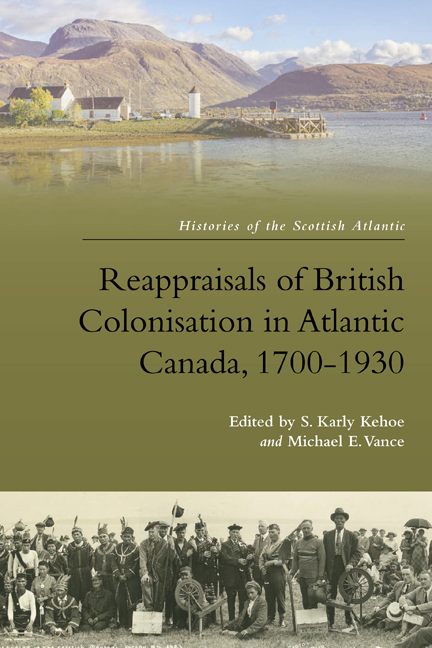7 - The Church of England, Print Networks and the Book of Common Prayer in the North-Eastern Atlantic Colonies, c.1750–c.1830
Published online by Cambridge University Press: 10 October 2020
Summary
The Church of England has featured only intermittently in histories of Atlantic Canada. Scholars focus on Roman Catholics and those Protestant evangelical groups – Baptists, Presbyterians and Methodists – that supposedly injected a democratic and dynamic element to the region's religious scene. When it is discussed, the Church of England appears as a conservative and cumbersome institution, one that had struggled with financial and recruitment problems from its foundation in the early eighteenth century. In the mid-1830s, for example, two-thirds of New Brunswick's eighty Anglican parishes lacked resident clergy. Mission work to indigenous communities was rarely prioritised, and the determination of churchmen to replicate old world traditions in new world environments, ‘everything from the parish church to the Book of Common Prayer's set services’, meant Anglicanism extended itself unsurely in frontier environments.
Yet historians who focus on the Church's financial difficulties and recruit-ment troubles paint too bleak a picture of Anglican fortunes in the Atlantic Canadian region. It was the Church of England that made an early and vital contribution to the development of higher education in Nova Scotia with the establishment of King's College, Windsor, in 1789. The Church was also a more popular, adaptable and rooted institution than historians have appreciated. The Church's historic relationship to the British Crown (prayers for the monarch were offered in Anglican churches every Sunday), coupled with its accessible forms of worship, made attendance at Anglican places of worship undemanding and a strategic choice for many. The Anglican bishopric established at Nova Scotia in 1787 was a new kind of non-political or ‘limited’ episcopate specially adapted to colonial conditions. Michael Gauvreau's research also shows that the region was home to a uniquely lay-orientated and cosmopolitan Church. Both the clergy and the congregations they served were ethnically diverse, and as in colonial America, Canadian congregations wielded considerable power over church property and the appointment of clergy. Calvin Hollett, writing on Newfoundland fishing communities, has highlighted the strength of a ‘popular’, ‘vernacular’ or ‘evangelical Anglicanism’: this was a religion that emphasised ‘the word’ and that was not dependent on bishops, clergy or institutional churches.
- Type
- Chapter
- Information
- Publisher: Edinburgh University PressPrint publication year: 2020



